Speakers
Speakers
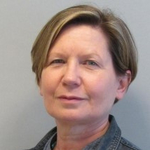
Elisabetta Boaretto
Director Kimmel Center for Archaeological Science of Weizmann Institute of Science
"Olive tree, with us for 8000 years and its secrets "
Elisabetta Boaretto is a nuclear physicist educated in Italy and Israel (Ph.D. Hebrew University). She spent three years at the AMS 14C Dating Laboratory, Aarhus University (Denmark). Since 2000 she is a Research Associate at the Weizmann Institute of Science and director of its Radiocarbon Dating Laboratory. Currently also is a lecturer of archaeological science at Bar Ilan University
She participated in numerous excavations that involve 14C dating in Israel and other countries. At Dor, she is working on dating the Iron Age I-II transition. She is also involved in dating projects based on other cosmogenic radio-isotopes such as 10Be and 26Al in flint tools and quartz in sediments.
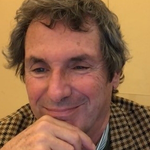
Paolo Inglese
Full professor at Universersity of Palermo
"Biodiversity and sustainable fruit growing"
Paolo Inglese was born in Palermo and took his degree in Agricultural Sciences at Unipa. He took his PhD in Tropical and Subtropical Agriculture at the University of Florence, in 1985. Full Professor of Arboriculture, at the University of Palermo since 2000, he teaches in the course Study of Agri-food Sciences and Technologies of which he was the Coordinator for 6 years. As a fruit quality expert, he has given short courses or lectures at Universities such as UCLA and UC Davis in California, Ben Gurion University in Beer Sheva, Israel. Academician of the Georgofili, of the Italian Academy of Agriculture of Bologna, of the Italian Academy of Forest Sciences and of the Italian Academy of Olive and Oil. Former President of the Italian Horticultural Society (SOI) for two terms. He is the author of several international volumes and over 125 publications surveyed by Scopus. He has always collaborated with FAO, for which he has several times coordinated a worldwide research network on prickly pears and has edited 2 technical volumes and several pamphlets. Since 2017 he serves as Director of the Museum System of the University of Palermo and with it he has created exhibitions, events and public engagement that involved thousands of visitors / spectators.
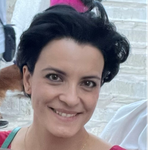
Gabriella De Lorenzis
Senior researcher at University of Milan
”Back to the origins of grapevine domestication process”
Plant biotechnologist Dr. Gabriella De Lorenzis studied a Pisa University (Italy) where received her Master degree in Plant biotechnology in 2004, and obtained her PhD in Plant Science in 2009. During her PhD research, she investigated the molecular determinants of terpene biosynthesis in grapevine. Then, she joined the Viticulture Group at the University of Milan to work on the characterization of grapevine germplasm under the supervision of Prof. Attilio Scienza and Prof. Osvaldo Failla. Since 2017, she is researcher at the Department of Agricultural and Environmental Sciences of the University of Milan. Actually, her research topics range from (i) genetic, biochemical and phenotypic characterization of grapevine germplasm, (ii) grapevine domestication, (iii) study of genotype x environment interaction, (iv) grapevine resistance to pathogens, (v) grapevine resistance to abiotic stresses. She has collaborated with numerous national and international research groups and attended several national and international scientific conferences. She has supervised a number of bachelor and master’s theses and is currently involved in the supervision of one PhD project. She has co-authored more than 60 SCOPUS indexed papers.

Avraham Levy
Dean, Faculty of Biochemistry at Weizmann Institute of Science
"Wheat evolution in nature and under human influence"
Prof. Avraham Levy, Chairman of the Scientific advisory board, is the Head of the Plant Science Department of the Weizmann Institute of Science in Rehovot, Israel. Prof. Levy heads a laboratory studying mechanisms that contribute to the accelerated evolution of plant genomes, such as transposons, DNA damages, DNA.
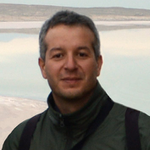
Matteo Delle Donne
Assistant professor at University of Naples "L'Orientale"
"The origin of the Mediterranean diet in prehistoric Italy: cereals, olive and grapevine"
Assistant professor in Palaeoethnobotany and Prehistoric ecology at the Department of Asian, African and Mediterranean Studies of University of Naples “L’Orientale” and member of ISMEO – The International Association for Mediterranean and Oriental Studies, Rome. Since 2003 he has been carrying out archaeological research in countries of the Near and Middle East, Caucasus, North-East Africa and Mediterranean Sea region, in order to reconstruct past human-environment interactions through the analysis and study of archaeobotanical remains. His main interests focus on the definition of the methods of production of foods of plant origin, the reconstruction of agricultural practices, processing and storage of plant products and the reconstruction of paleoenvironmental features. He is the author of various studies published in national and international periodicals and journals.
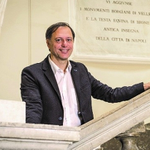
Paolo Giulierini
Director of MANN Museum Naples
"the MANN Museum: ancient treasures of the Mediterranean Diet"
Archaeologist, he graduated in Etruscology and Italic Antiquities and specialized in classical archeology at the University of Florence, where he also carried out teaching activities. Appointed Director of the National Archaeological Museum of Naples for a first four-year term, renewed last July, until 2023.
As Director of the MANN, he designed and oversaw the reopening of the Egyptian, Epigraphic, Magna Graecia and Prehistory sections (the latter, open again in 2020).During his first term, numerous archaeological and contemporary art exhibitions were held at the MANN
He was interim director of the Phlegraean Fields Archaeological Park
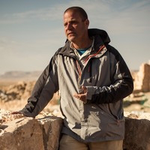
Guy Bar-Oz
Full professor at University of Haifa
"From excavation to plate: Rediscovering the delicacy of Byzantine cuisine"
Guy Bar-Oz is an archaeozoologist. He is the director of the Negev Byzantine Bio-Archaeology Research Program, an ERC project, and head of the Laboratory of Archaeozoology, University of Haifa, Israel.His research experience in zooarchaeology includes excavation and analysis of numerous prehistoric and historic bone assemblages from Israel and the Caucasus (Georgia, Armenia). His research focuses on three main subjects: the evolution of human hunting and subsistence behavior in prehistory, the development of complex economic-subsistence systems in the historic periods of the Near East, and human impact on the environment.
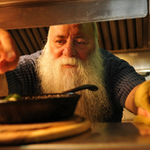
Uri Jeremias
Chef at Uri Buri
"From excavation to plate: Rediscovering the delicacy of Byzantine cuisine"
Uri Jeremias is the chef and founder of Uri Buri fish restaurant in Acre, Israel, and co founder of gavan bio technology start up, restorer and owner of the historical Efendi hotel. He is also honorary fellow of the University of Haifa.
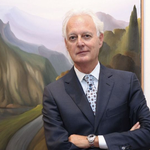
Sergio Barbanti
Ambassador at Italian embassy in Israel
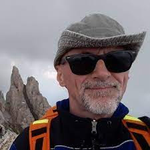
Stefano Ventura
Scientific Attache' at Embassy of Italy in Israel